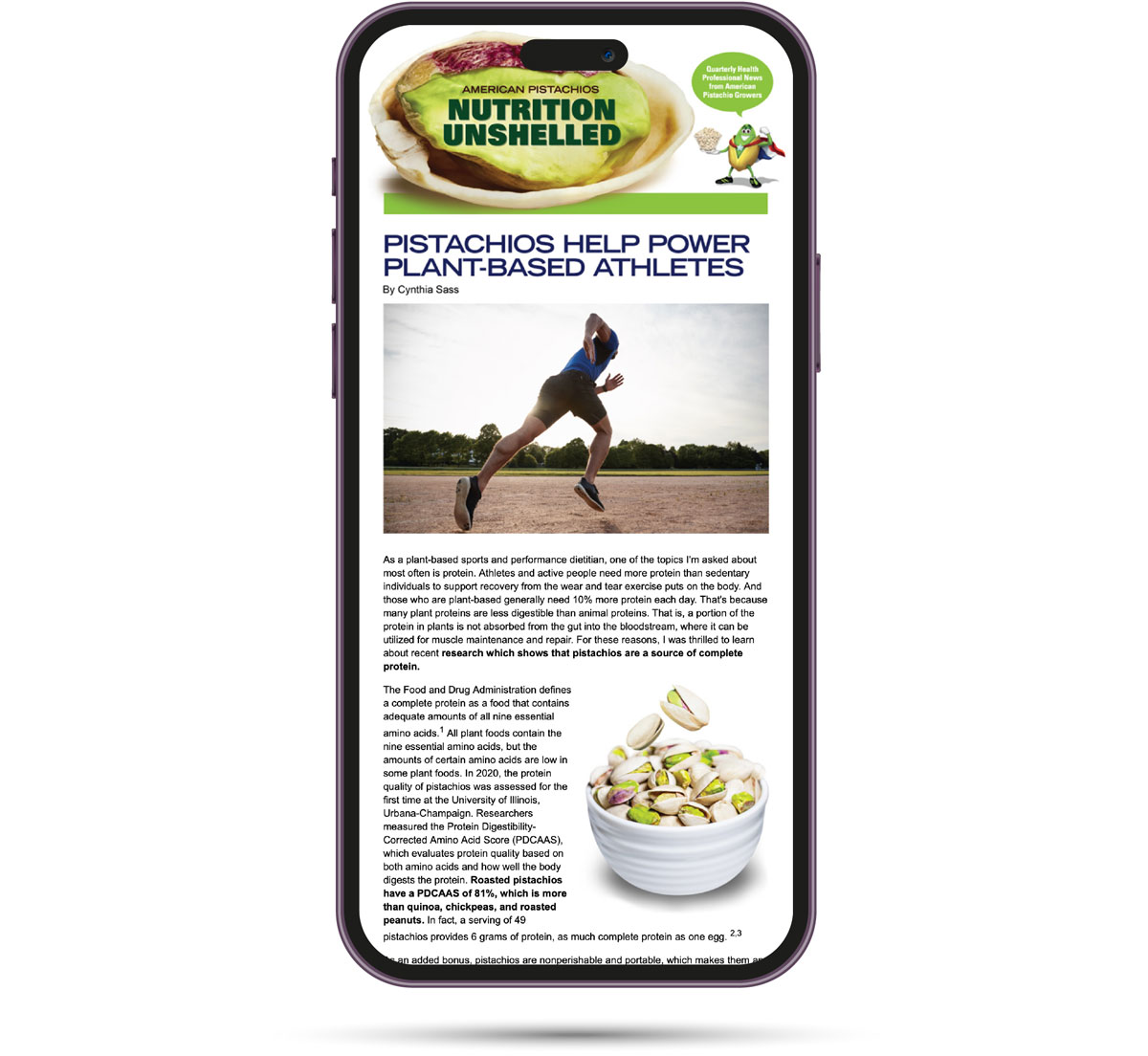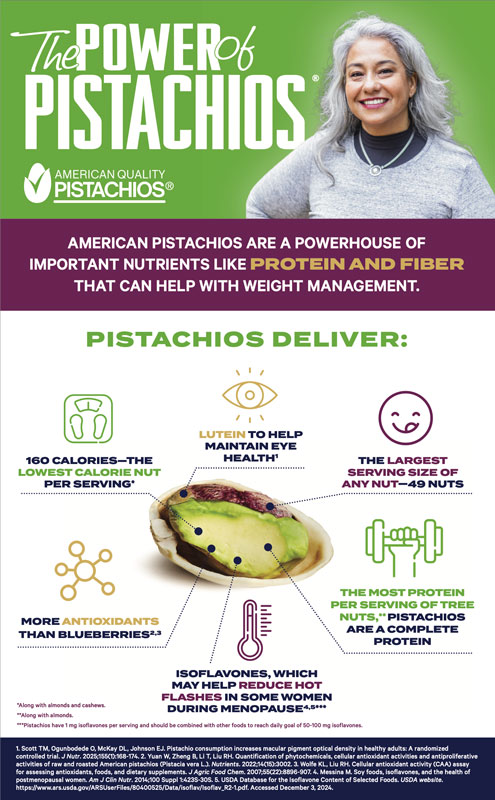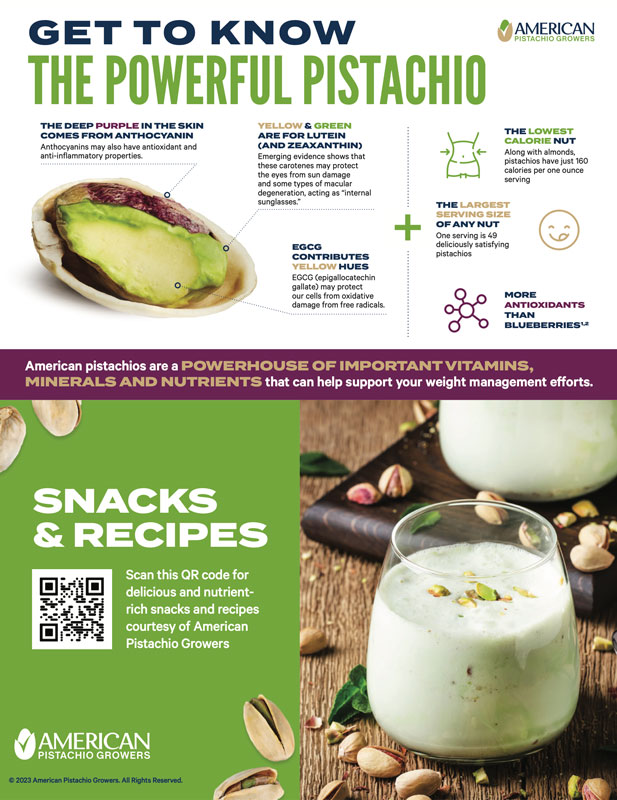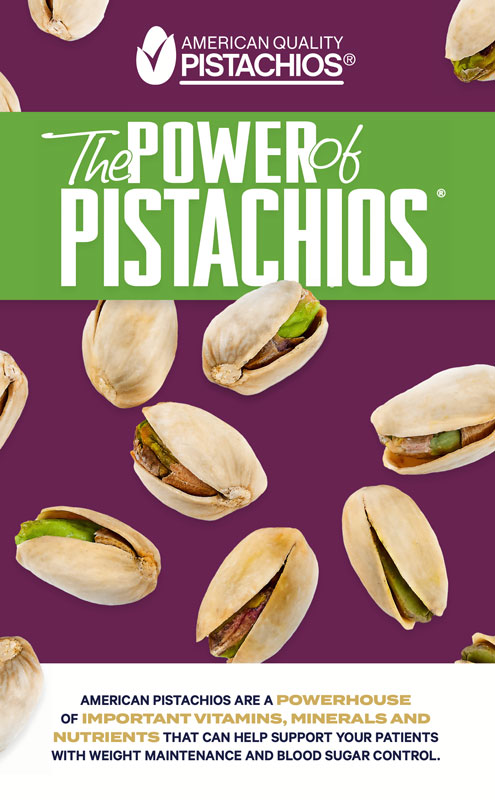NUTRITIONAL SUPPORT FOR A KEY LIFE STAGE
Celebrate Menopause Awareness Month With Science-Backed Tools For Clinicians And Patients.
Addressing the Menopause Knowledge Gap with Nutritional Strategies Patients Can Trust
Recent data shows that the most frequently searched menopause symptoms include:^
- Weight changes (with over 90,000 searches)
- Hot flashes (over 62,000 searches)
- Insomnia (over 20,000 searches)
When it comes to nutrition and menopause, there has been a rising interest in information about:
- Protein intake (+55% YoY)
- Cholesterol (+34% YoY)
- Heart health (+21% YoY)
There’s also an increasing interest in managing hot flashes (+18%), blood pressure (+15% YoY), weight gain (+15% YoY) and insomnia (+11%) through dietary choices.
Many women are turning to TikTok and social media to navigate confusing symptoms during the menopause transition — leaving them vulnerable to misinformation and frustration.
HERE'S WHERE YOU COME IN
As an HCP, you're in a powerful position to close the gap — offering trusted, evidence-informed recommendations that meet women where they are.
ENTER: PISTACHIOS.
Pistachios aren’t just a snack. They’re a nutritionally dense, clinically-relevant food that supports the most common concerns during menopause — including cardiometabolic health , brain health, weight, and even delivering isoflavones, which may help reduce hot flashes in some women.
THE SCIENCE BEHIND PISTACHIOS AND MENOPAUSE HEALTH
A simple snack with serious science.
Menopause is a pivotal time in a woman’s health journey — and nutrition can play a powerful role in symptom management and long-term disease prevention. American-grown pistachios offer a unique combination of nutrients that support key clinical concerns for midlife women. Emerging data suggest this plant-based, convenient snack has a place in your menopause care toolkit.
Here’s why pistachios are worth considering in patient conversations:
- Cardiometabolic Support Where It’s Needed Most
With heart disease risk rising post-menopause, pistachios deliver a cardiometabolic advantage — supporting healthy blood pressure, glycemic control, and lipid profiles. Research shows they can even blunt post-meal blood sugar spikes when paired with carbohydrates.
- Weight Management Without Restriction
Incorporating pistachios as a calorie-controlled snack has been shown to support weight loss goals without compromising satiety or nutrient intake. Patients can enjoy 49 nuts per serving — the largest portion among nuts — with only 160 calories and 6 grams of high-quality protein.
- Essential Nutrients for Bone, Muscle, and More
Pistachios provide essential nutrients for aging well — including potassium, magnesium, and complete plant protein. These nutrients support bone mineral density and muscle preservation, both of which are critical during and after menopause.
Spotlight: Protein Needs During Menopause
Studies show women going through menopause need to eat more protein,* including from plant sources, to preserve muscle mass and strength as estrogen levels decline.
One way to help meet daily protein goals is by choosing foods that provide complete protein—those that contain all nine essential amino acids the body can’t make on its own.
Pistachios are one of the few plant-based foods that naturally provide complete protein, with 6 g per 1-ounce serving (49 nuts), making them a simple, tasty option for adding high-quality plant protein to the diet.
- Nutritional Support for Midlife Eye Health
Menopause can affect eye health due to hormonal changes, particularly declining estrogen levels, which can lead to dry eyes, blurry vision, and an increased risk of certain eye conditions. Pistachios can support eye health due to their high content of lutein and zeaxanthin, antioxidants that act as natural filters for blue light. Studies suggest that regular consumption of pistachios can increase macular pigment optical density, which is a key indicator of eye health and protects against age-related macular degeneration.
- Isoflavones: A Natural Ally for Hot Flashes.
Pistachios are the most concentrated tree nut source of isoflavones — compounds shown to help reduce the frequency and severity of hot flashes in some women during menopause.+
- Antioxidants That Work Harder
With more antioxidants than blueberries, pistachios deliver anti-inflammatory and neuroprotective compounds that may support brain health, mood regulation, and healthy aging — areas of increasing concern among midlife women.
- Brain Health and Aging
Pistachios contain nutrients and bioactive compounds that play a role in supporting brain function and emotional well-being. These include unsaturated fats, fiber, plant-based protein, vitamin B6, magnesium, and antioxidant phytochemicals such as lutein and polyphenols. Emerging research suggests that these nutrients may support healthy neurocognitive function particularly as we age.
- Fiber During Menopause
During the menopause transition, fiber can be an important part of a balanced diet, helping support digestive health and contributing to feelings of fullness. Many women may fall short of the recommended 21–25 grams of fiber per day. Pistachios provide both soluble and insoluble fiber—3 grams per 1-ounce serving—making them a flavorful, plant-based way to help add more fiber to daily eating patterns.
Bottom line: Pistachios aren’t just a snack — they’re a science-driven, patient-friendly way to support women’s health during menopause.
RESOURCES FOR CLINICAL PRACTICE
NEW:
American Pistachio Growers Nutrition and Health Benefits Icons
Great for social media posts or websites

Subscribe to our quarterly newsletter to receive more information about new research, nutrition resources, recipes and tips that can benefit your patients.
ENDORSEMENTS FROM THE EXPERTS

Elizabeth Ward, MS, RD
“Midlife women often fall short on fiber, which plays an important role in reducing the risk for heart disease and type 2 diabetes, and supports digestive health. Pistachios provide three grams of fiber per one-ounce serving and they supply both soluble and insoluble fiber, making them a satisfying, flavor-packed way to add fiber."

Abbie E. Smith-Ryan, Ph.D., CSCS*D, FNSCA, FACSM, FISSN
“As women navigate the menopause transition, nutrition is a powerful tool for managing symptoms and supporting long-term health. Pistachios stand out as a smart, science-backed snack — offering complete plant protein, fiber, magnesium, and key electrolytes that address common concerns like muscle loss, weight changes, and mood fluctuations. Their unique nutrient profile makes them especially relevant for midlife women seeking simple, evidence-informed ways to feel better and age well."

Hillary Wright, MEd, RDN, LDN
“A major concern among menopausal women is weight gain, so finding sustainable ways to curb calorie intake while still feeling full can be a challenge. At 49 nuts per serving, snacking on an ounce of pistachios provides only 160 calories, contributes 6 grams of high-quality protein to the diet, and has been shown to support weight loss goals without sacrificing satisfaction or diet quality."
FREE PATIENT SAMPLES
WORLD
MENOPAUSE
DAY
IS OCTOBER 18
Join the movement to empower women’s health with nutrition.














